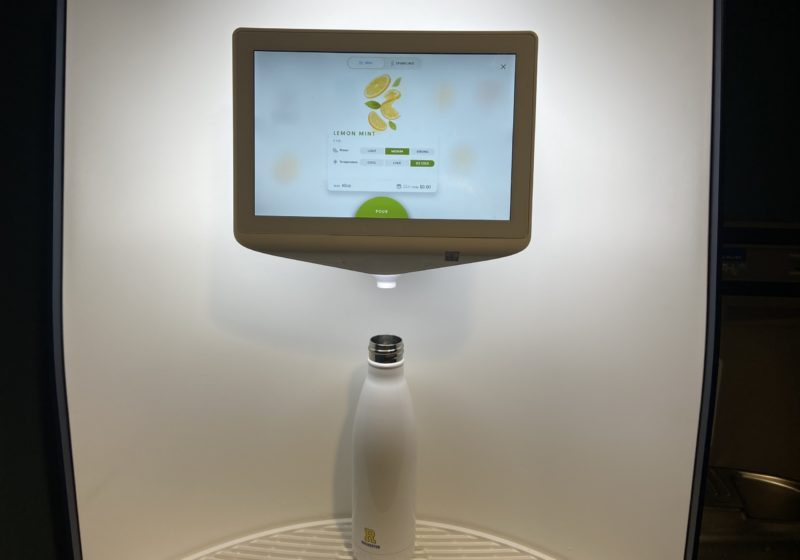Usually when there’s a giant fair in Hirst Lounge, it has some redeeming quality, or we get something out of it. When local artists come during the holiday season, we can buy unique gifts and give back to the community by supporting small businesses. When career fairs come around, students are given a foot in the door with potential employers.
This time, we got nothing out of it except artificial sweeteners and a chance to buy another subscription. And a free water bottle.
Representatives of SodaStream — owned by PepsiCo — graced our campus last week, taking up prime real estate in Hirst Lounge and guarding the doors to Danforth to give out free water bottles to students. It was part of a campaign to advertise the four new water machines that have been installed around campus. You scan the QR code on your bottle, which pairs it with your newly-downloaded SodaStream app that you will soon place in that folder with the other apps this University makes us download. (Hi, Campus Groups.)
The promotion they’re currently running gives you five free fills, in the hopes of getting you hooked on their product. After that, it’s 25 cents a pop, or $10 for 30 days of premium water. Cause who wants boring, normal, free water from the fountain right next to it?
The best part? The app lets you track your water intake — but, of course, only when you drink from their fountains.
When you press “pour,” the screen tells you what percentage of your daily goal you’ve met, and reminds you that you’re “making an impact.”
This move does have positive environmental effects. PepsiCo is selling us bottled water without the bottle. By taking out the plastic middleman, this capitalist endeavour moves closer to an ethical sales pitch.
But when you poke the do-gooder bubble, this operation is yet another reminder of the sickly-sweet tone corporations will adopt to sell you anything. Sodastream feels like a scam from a cartoon. The fox has come to our town peddling his wares for profit in the name of virtue.
Our education shouldn’t come with ads before it.
Practically speaking, we go to college so we can be employed. But it is also a place where we can work, learn, and spend time with our peers and friends. It’s the palpable sense of community that we miss during breaks.
When a company sets their salespeople on campus spaces, that sense of community is interrupted. We are no longer part of a community, we are part of a consumer demographic. We all know capitalism is unavoidable (for now), but surely UR can avoid allowing such an obscene display of high-tech, run-amok consumerism.
UR, we’ve already paid you. Why do you need to keep selling us stuff? Provide your end of the bargain and stop trying to wring every last cent from students trying to get an education.
But we like the free swag. We’ll be reusing the bottles at the many free water fountains available on campus.
The Editorial Board is a weekly Opinions article representing the view of the Campus Times, co-written by Editor-in-Chief Wil Aiken, Publisher An Nguyen, Managing Editor Efua Agyare-Kumi, and Opinions Editor Hailie Higgins.



